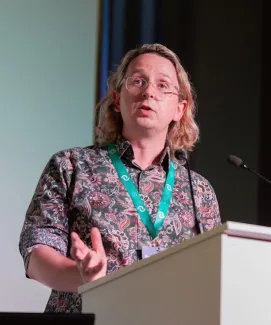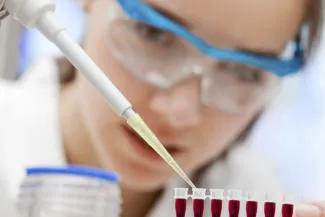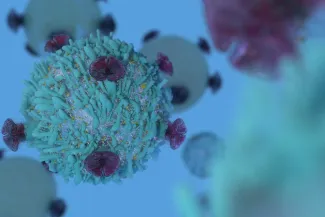This project was funded as part of an £800,000 investment into Ewing sarcoma research by CCLG Special Named Funds (#PearlPower, Kieran Maxwell Legacy, Rosie Rocks the World, and David Vernon’s Fund), the Bone Cancer Research Trust, the Ewing’s Sarcoma Research Trust and Great Ormond Street Hospital Charity.
Led by Professor Clare Davies and Dr Susanne Gatz, researchers at the University of Birmingham aim to develop a new, targeted treatment for Ewing sarcoma. A targeted treatment could cause less damage to healthy cells than traditional Ewing sarcoma treatments, which currently can lead to lifelong health complications.
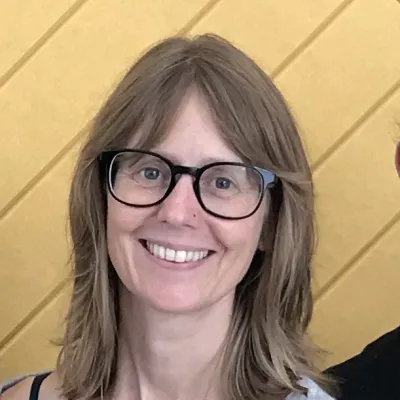
Professor Clare Davies

Professor Clare Davies
Researcher at the University of Birmingham
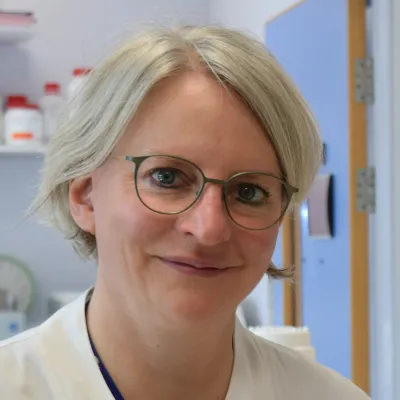
Dr Susanne Gatz

Dr Susanne Gatz
Researcher at the University of Birmingham
Ewing sarcoma is driven by a genetic error called EWSR1-FLI1, which helps the cells replicate quickly and grow out of control. However, it is notoriously difficult to target for treatment. Instead, the researchers want to target EWS-FLI1 indirectly, by focusing on a process known as the ‘replication stress response’.
When the cancer cells are forced to grow faster by EWSR1-FLI1, it can cause a lot of damage to the new cancer cells. Therefore, the fast growth has to be kept in check by molecules, such as the PRMT5 protein, that manage the replication stress response to make sure the cancer cells survive.
Professor Davies and Dr Gatz believe that targeting the replication stress response via PRMT5 could overwhelm the cancer cells by letting EWSR1-FLI1 push them into fatal levels of stress and damage. Since PRMT5 can be targeted by drugs already in development for other cancers, it may offer a new way to treat Ewing sarcoma more effectively.
Their newly funded research aims to investigate how PRMT5 helps EWSR1-FLI1-driven cancer cells survive, and whether this can be blocked using drugs known as ‘PRMT5 inhibitors’. Since PRMT5 is easier to target and inhibitors are already in development for other cancers, this could pave the way for a more effective Ewing sarcoma treatment with fewer side effects.
Helping to fund this new research were several CCLG Special Named Funds, including Rosie Rocks the World, set up in memory of Rosie, who died from Ewing sarcoma aged 17.
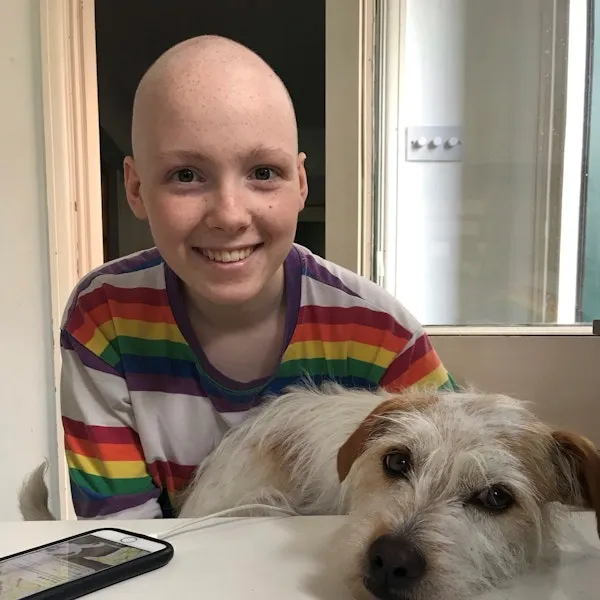
Rosie’s mum, Emma, said:
We want to create change, so other families don’t have to face what we have. It means everything to know that Rosie’s legacy can bring hope, progress, and the possibility of better treatments or even a cure. It gives our grief a purpose. Rosie should still be here. If research into Ewing sarcoma had been further along, her outcome – and ours – might have been different.
Emma said that Rosie would have been proud of funding the research, adding: “She cared deeply about others and was always thoughtful and empathetic.
“She would have loved knowing that something in her name was helping others and making a difference in the world. She lived her life with positivity, even during her illness, and believed in spreading happiness. Being part of something bigger – something with meaning – would have meant everything to her.”

